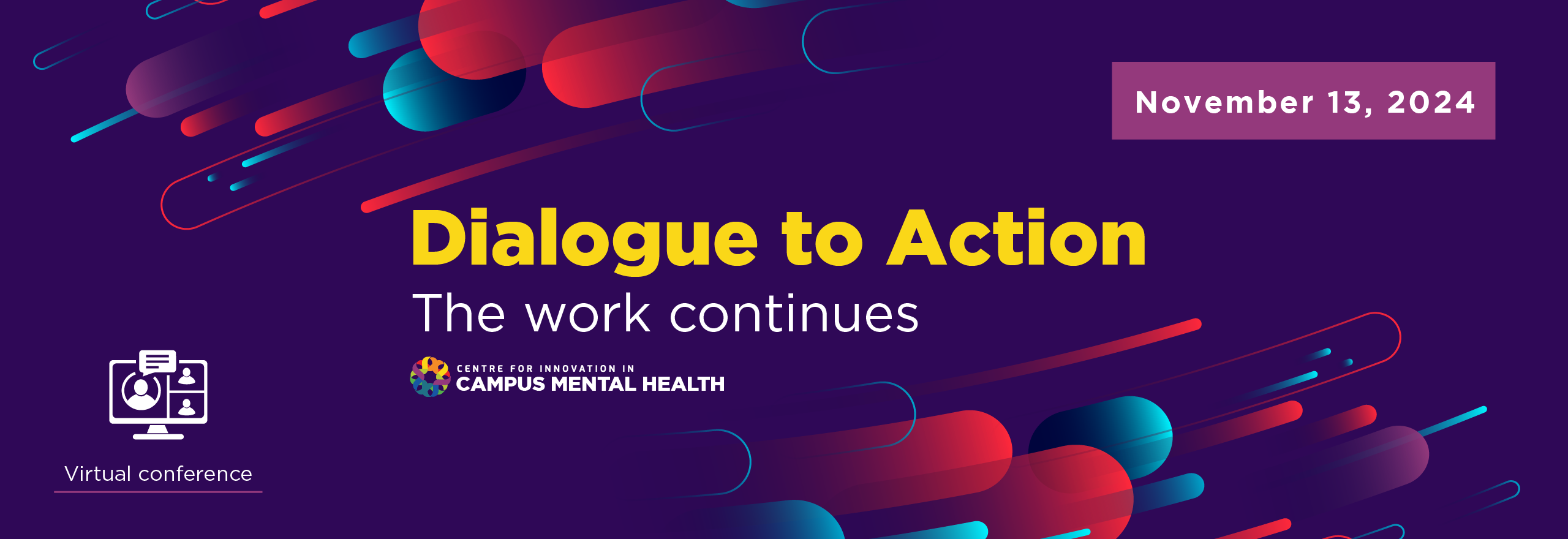
We are continuing with our theme from last year, “Dialogue to Action” with the addition of “The work continues” since we continue to work towards improving capacities on Ontario campuses in supporting student mental health. We acknowledge that dialogue is a critical step in the process of shaping change; it allows us to share ideas, work through logic, and problem-solve together. However, this process gets us nowhere without being combined with continuous action. Throughout the conference, attendees will be encouraged to take initiative, put in the effort, and make moves to bring our collective vision of a healthy campus to reality. In working with this theme, each conference session will feature a call-to-action for participants to consider and join. Through this lens, we will also be exploring topics that embed and examine the social determinants of health.
There is a growing movement for institutional leadership and campus frameworks to implement equity, diversity, inclusivity, accessibility, and anti-racism-related policies to ensure equitable access to services and programming on campus. Province-wide, there has been a focus on understanding the unique needs of students based on the various intersections of their identity, such as culture, race, religion, sexual orientation, and physical or mental health disability. Presentations in this stream will address equity-driven and student-driven programming.
Presentations in this stream will focus on the overarching systems of mental health provision on campus and how students and staff are challenging and changing those systems through anti-oppressive practices. Presentations in this stream will speak to systemic barriers within this work and strategies for shifting the structure and organization of mental health services on campus through the implementation of EDIAA (Equity, Diversity, Inclusion, Accessibility, and Anti-Racism) principles, including work around the National Standard for Mental Health and Well-Being for Post-Secondary Students.
Presentations in this stream will center around Indigenous world views grounded in holistic understandings and the value of interrelatedness as a model for wellness and engagement of Indigenous student populations. Areas of focus may include embracing Indigenous worldviews in campus and learning environments, Indigenous pedagogy, and educational interconnections.
Facilitating connection and belonging among students is vital to counter the increasing experiences of isolation and loneliness in the virtual world. The recent shift away from being physically on campus has highlighted a need to devise innovative strategies that allow students to meaningfully engage with their institution and peers. Presentations in this stream will center around innovative initiatives that create meaningful programming for students outside the classroom environment, utilize peer-to-peer models to develop meaningful relationships among students, emphasize communal spaces for students to address mental health and wellness topics, and feature co-design with students.
There has been an increase in substance-related harms and problematic gambling behaviours on campuses. Presentations in this stream will focus on the use and misuse of drugs, alcohol, and other substances by student populations, as well as gambling-related harms. Example topics might include trends and patterns in student substance use, harm reduction programming on campus, strategies for reducing substance-related harms, and responsible gambling strategies.